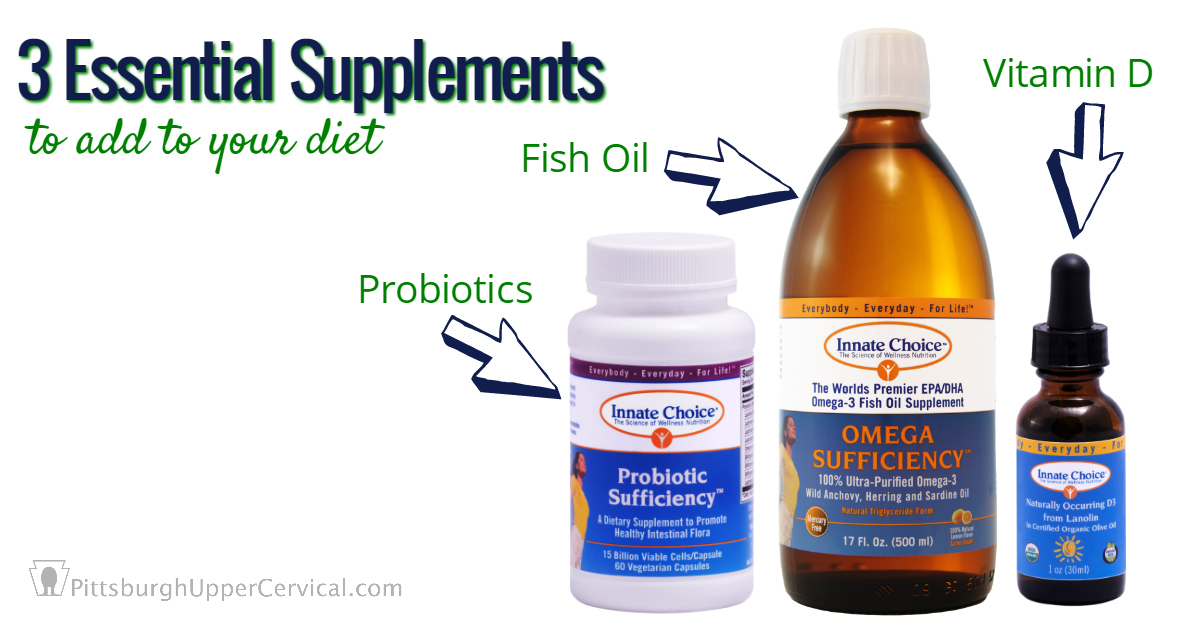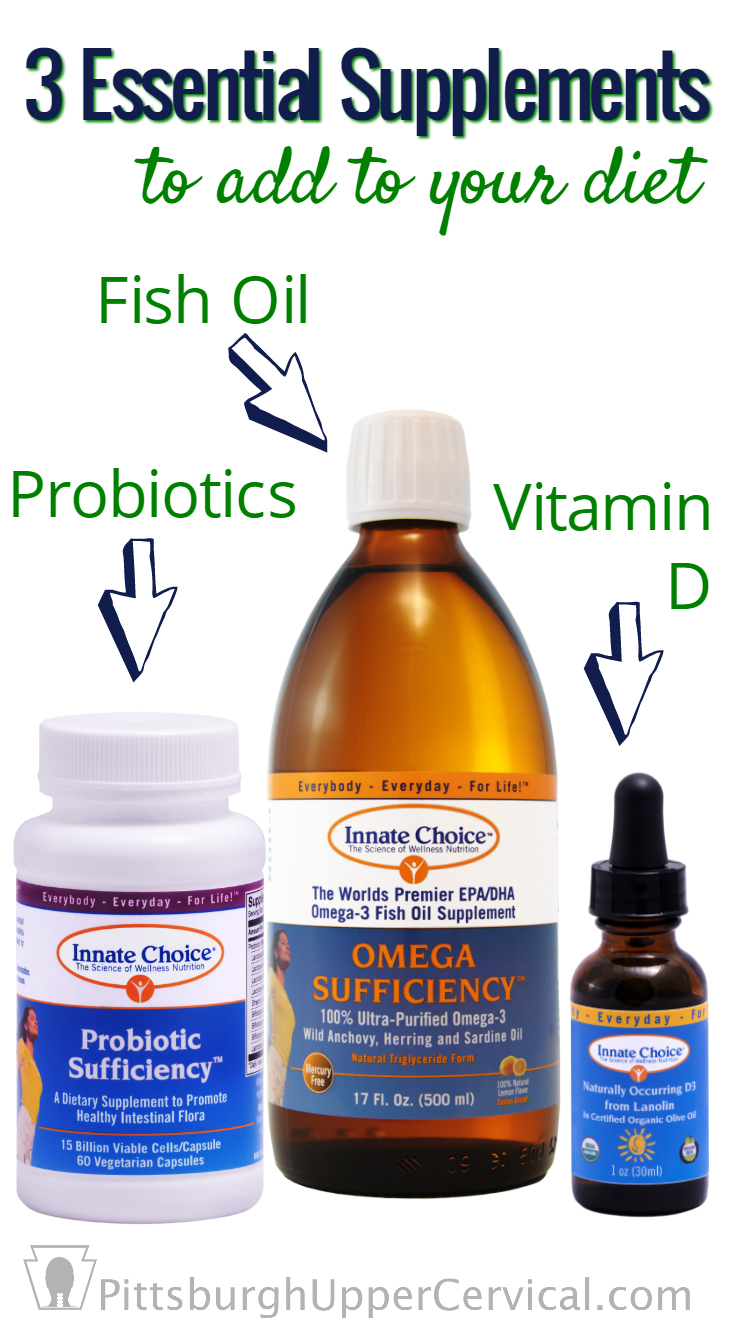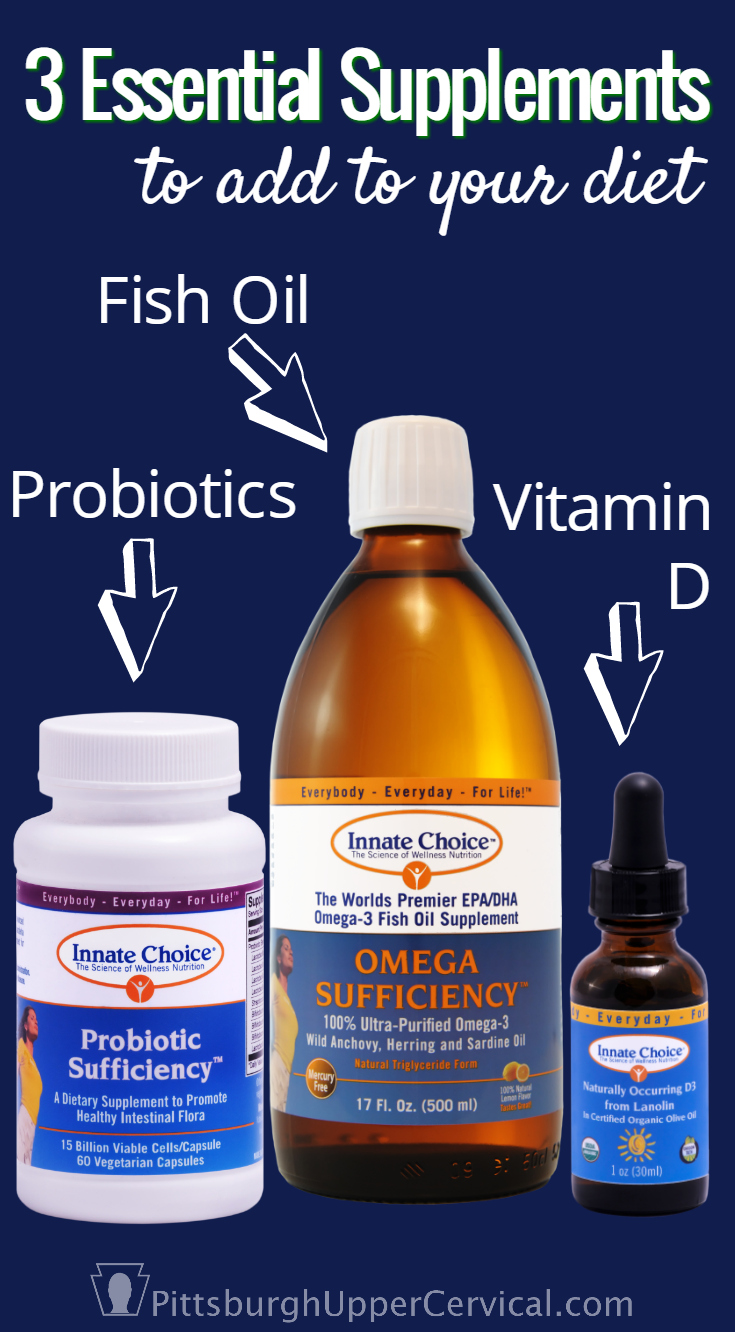
We previously discussed the significance of addition in terms of adding nutritious foods to your diet BEFORE subtracting “bad” foods from your diet. (Read this post and check out #AdditionChallenge on Instagram for ideas and inspiration.) How did the challenge go for you? What nutritious foods did you add to your diet? What new foods did you try? What new recipes did you try? Did you notice that the added nutritious foods started to naturally eliminate your desire for “bad” foods?
Adding nutritious foods to your diet is so vital that it’s also important to address it from a supplement standpoint. Here are the best supplements to add to your daily regimen.
Fish Oil.
One of the best and thoroughly researched supplements available is fish oil. Fish oil is an excellent source of omega-3 essential fatty acids, DHA and EPA. As the name suggests, essential means that it is required by everybody and must be consumed or supplemented as the body does not manufacture it on its own. Every cell, tissue, organ, and gland in your body requires essential fatty acids, and most people have excess omega-6, which comes from ingestion of animal meats (beef and chicken). Omega-6 tends to be pro-inflammatory, while omega-3 is anti-inflammatory. The goal is not to stop eating foods rich with omega-6, but to add omega-3 to restore balance. Omega- 3 fatty acids consist of EPA (eicosapentaenoic acid) and DHA (docosahexaenoic acid) which are the main components of brain neurons and cell membranes. In addition, DHA is the main omega-3 fatty acid found in breast milk. Research shows that the triglyceride form of fish oil is the best way to maximize absorption by the digestive tract.
According to Dr. James Chestnut, wellness expert, chiropractor, and founder of Innate Choice, omega-3 fatty acid (EPA and DHA) deficiency can be a causal factor in development, learning, and behavior problems such as ADHD, as well as vision, digestive and skin disorders in infants and children. EPA and DHA deficiency in teens and adults has been shown to be a causal factor in breast, colon, and prostate cancers, heart disease, strokes, diabetes, arthritis, high cholesterol, high blood pressure, depression, skin disorders, digestive disorders, chronic pain, vision problems, hormonal problems, and pregnancy complications including improper fetal development, premature birth and postpartum depression. EPA and DHA deficiency in the elderly has been shown to be a causal factor in diabetes, high blood pressure, mood disorders, osteoporosis, arthritis and Alzheimer’s.
Probiotics.
This has been featured and discussed in Dr. Martin Blaser’s book: Missing Microbes and Dr. David Perlmutter’s books: Grain Brain and The Brain Maker. Probiotic supplementation is designed to replenish and replace the 1 trillion gut bacterial cells, which represent about 90% of all the cells found within the human body! These good bacteria help breakdown food, process nutrients, release vitamins, and help you achieve normal, natural digestion. Most people’s diets are deficient in fruits and vegetables and toxic from processed foods, dairy, refined sugars, and antibiotic use, which results in a depleted healthy gut bacteria profile. When the beneficial bacteria are missing, the harmful microorganisms, such as yeast and illness-causing bacteria are allowed to grow. The digestive tract is known as the second brain, and is a major contributor to your immune system and releases serotonin, the “feel-good” neurotransmitter. Ideally, the human gut probiotic flora should consist of strains of Lactobacillus and Bifidobacterium, which is not found in dairy, goat’s milk, soy, wheat, or corn.
According to Dr. Chestnut, deficiencies in healthy probiotic bacteria are linked to deficiencies in immune function and digestive tract function and to decreased overall health and vitality.
Vitamin D.
Sunlight is the best source of vitamin D, but, most people are not working outdoors. Most people work indoors for 8 hours a day, drive in their car, then go inside their homes. Even when they’re outside, they’re clothed and/or wearing sunscreen. In order to achieve adequate levels of Vitamin D from sunlight, you need to have approximately 30 minutes of summer sunlight exposure to the major areas of your body (i.e. chest and back) everyday, not just your arms, legs, and face. You can get a minimal amount of vitamin D from your diet—egg yolks are one source. A good Vitamin D supplement comes as D3 (cholecalciferol) and is in an oil base.
According to Dr. Chestnut’s research, vitamin D deficiency can have severe consequences and is linked to very serious illnesses, such as cancer, heart disease, asthma, allergies, autism, autoimmune diabetes, and seasonal colds and flu in people of all ages.
In combination with a good diet, the addition of fish oil, probiotic, and vitamin D supplementation, can help fill the gaps in your dietary profile, naturally reduce inflammation, improve cellular structure and vitality, improve digestion and absorption of nutrients, as well as improve the innate healing capabilities of the body. Add a great chiropractor to your team, and you will find yourself well on your way to achieving the health you were destined to express!
Looking to order these supplements? Visit our shop page to purchase any of the supplements listed on this post!
Want specific individualized care with limited adjustments and lasting results?


Affiliate Disclosure: Some of the links in this post are affiliate links, meaning that a special tracking code is used, and we may make a small commission on the sale of an item if you purchase through one of these links. Any product that we link to is something we personally use, support, and/or would recommend to our family and friends. Please do not feel any obligation to purchase using these links. The price of the item is the same for you whether it is an affiliate link or not, and your purchase helps to maintain PittsburghUpperCervical.com. Thank you for your support!
Hey! This post couldn’t be written any better! Reading this post reminds me of my previous room mate! He always kept talking about this. I will forward this post to him. Fairly certain he will have a good read. Thanks for sharing!
We’re glad you enjoyed the post and hope your roommate does too!